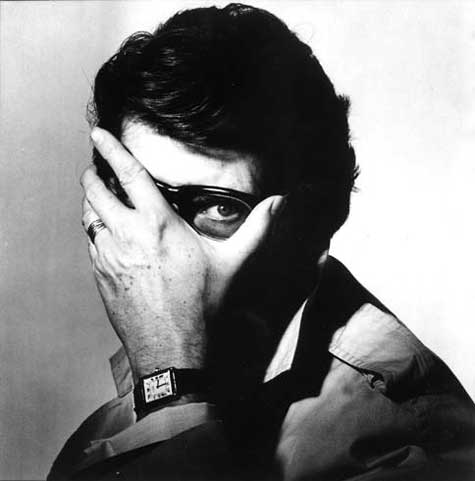-
“I guess you could ask people to make recommendations on LinkedIn,” said Scott. Scott and I both work in information technology. “ 'Working with Cynthia was an amazing experience as she always made deadlines and was incredibly prepared for meetings and she is as good as her word when it comes to not dropping a deuce on your floor.'” Marvellous writing, as ever, from Paul Ford.
-
"I’d really like more week-long exercises in fiction delivered to me via Twitter. The problem with other accounts for fictional characters – including, say, The West Wing’s Joshua Lyman and Donna Moss – is that they’re continuous, shapeless roleplay. I want a planned narrative that ends."
-
"It has been interesting to watch the rise of the subsequent discourse on gamification, because to me, the focus on "achievements" and such misses the real power of games: they teach us dynamic system models. The instruments we build at Bloom will each provide a different "physics of information," or game-like rule set that maps the variables from the data the user is viewing (how many followers does my friend have) into a set of rules that govern the behavior and presentation of the data (how big is the dot that represents that friend). Once users learn how these rules work, they can perform the system like they might perform a video game, zooming through structures, using tools, and interacting with the environment. Play is the way humans learn how new environments work. We'll let people play in countless environments built by their own network data and resources." Dingdingding!
-
"Design, host and share your own custom maps." Interesting – tile hosting, tile creation.
-
"Sony's statement suggests that it was actually storing sensitive information in plain text format, which defies belief. The only other explanation is that hackers only got access to the hashes and may have compromised a small minority of passwords by running this data through something like a dictionary look-up. However, from the tone of Sony's apology this does not appear to be the case." Good god; they're certainly transmitted as plaintext to PSN – according to the IRC log referenced in this article – so the incompetence required to store them as plaintext is already evident. Appalling.
-
"At a time when the artworld has become a bloated thing like a celebrity based branch of the stock exchange, it is very satisfying to make a real and seriously thoughtful transaction." Tom Phillips' Word Cross is now in a parish church in Kent. Great.
-
"Apple has already built its TV. It’s called the Apple TV and that’s why it’s called the Apple TV. Because we’re supposed to be rethinking what a TV is. The TV is not the screen with seven different inputs for your players and boxes and game machines. The TV is the content and the buttons we touch to get to that content."
-
" A physical model of Eindhoven rolled onto a drum and attached to a piano. A form of player piano with the city as the score." Just beautiful.
-
MeFi thread spun out of my Roguelikes post; some great comments and insight, and what a cast!
-
"There was one guy on the steps of a building and proselytizing the end of the world. My guess is that he was doing it for jokes, but if you’re in the middle of it with your friends exploring a world covered in blood, then there’s something in our understanding of the Black Death in the Dark Ages and people announcing the coming of the end that plays into the social fear." Kill Screen interview on the Corrupted Blood outbreak in WoW.
-
"I keep reading books and seeing movies where nobody can fucking say anything except fuck, unless they say shit. I mean they don’t seem to have any adjective to describe fucking except fucking even when they’re fucking fucking. And shit is what they say when they’re fucked. When shit happens, they say shit, or oh shit, or oh shit we’re fucked. The imagination involved is staggering. I mean, literally." Ursula LeGuin on obscenity, swearing, and the way it's used on contemporary media. (LeGuin is someone who, for reference, has always used language precisely and carefully; she is not a prude, just bored of a lack of imagination.)
-
This large image (4400×2364 pixels) is completely marvellous: a genuine history, reaching back into trends from the dawn of literature, and with a healthy chunk of 19th century gothic/mystery in there. Makes me very happy, especially in terms of fond memories of books I've enjoyed.
-
"The first 5 summoners who received 1+ week suspensions who reply to this thread – I will reply to your post with additional details explaining the suspension." Great thread: trollers and griefers ask to know why they received bans, understanding that the complaints against their names will be revealed in public. Then, some of them appear confused as to precisely why their crimes were considered so. Interesting piece of transparency from the LOL staff.
-
Shutterbug vs the Super Metroid soundtrack, from the new Team Teamwork joint. Oh yes.
-
This is very true: "There’s too much emphasis on the significance of the placement, which is trivial in this medium, and not enough emphasis on creating good AR art, which is hard… rather than try injecting AR pieces into popular venues, I’d like to see someone focus on AR pieces so compelling that people are willing to travel to see them. That would be revolutionary."
-
"The ways in which people interact with computation are changing swiftly as we move into more casual relationships with our digital services on tablets, big screens, and across social networks. We believe we have some compelling answers about how digital experiences will evolve into these new contexts. Please, follow along with us and explore these playful, dynamic instruments of discovery together." These guys are going to be worth keeping a very beady eye on; what a team.
-
"I have been an avid gamer since the advent of Pong in 1972. At their best, videogames strike me as a form of art. Like all art, they can augment outer reality and shape our inner reality—but they do this by the very nature of the fact that they are not reality but a Place Apart. Being awestruck at "Halo" does not entail awe any more than "grieving" for Cordelia entails grief. Rather, art at its most serious is a sort of exercise, a formative practice for life—like meditation, only more fun." WSJ review of Reality is Broken; negative, but acute.
Hacking on making art: my talk from Culture Hack Day
05 February 2011
My lightning talk from Culture Hack Day is now online as a video.
The lightning talks were meant to offer a provocation to the audience. I chose to point at the value of technology in creating art and cultural artefacts. Hack days are so often focused on repurposing and remixing; I think that hacking on culture should, in part, be about creating it as well.
What followed is an eight-minute whistle-stop tour through some art that interests and excites me, and a consideration of how technology might be used within that sort of work. I rather enjoyed this: nice to think outside some of my usual boxes, and focus on some more personal interests.
Media from 2010
03 January 2011
In 2009, I kept a textfile in ~/Documents to track all the books I read. In previous years, I’d forgotten what I’d read, and didn’t want to lose track.
At the end of the year, I was disappointed in how tiny the list was. This was mainly in down to 2009 being a rubbish year (as years go). But still: for someone who loves books, it wasn’t enough.
This year, I repeated the exercise, but with a file called media-2010.txt. The goal was to track everything I consumed, whether or not I liked it or not. My thinking was simple: I wanted to read more, but by tracking movies, TV shows, exhibitions, and games, I hoped that I could at least see what I was doing when I wasn’t reading.
This isn’t the full list, but it’s the picks of it for this year.
Films
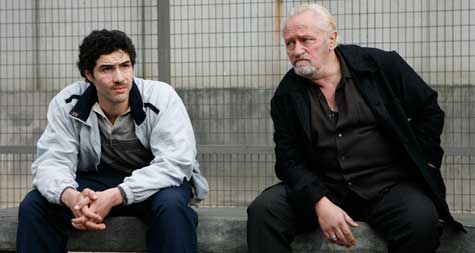
The best film I saw in 2010 was Jacques Audiard’s A Prophet. His The Beat That My Heart Skipped was already a firm favourite, so I was hugely enthusiastic for this, and really wasn’t disappointed. Superficially, it’s a prison drama, but there’s so much more going onto it than that, and it segues between life inside the prison, trips outside, and fantasy sequences with little fanfare. An early, pivotal scene of violence is brutal and truly unpleasant; it’s intended to stick with you throughout the movie, as it’s a hinge the plot sits upon. But outside that, violence is more a threat than a depiction, perhaps making the memory of that horrendous scene more notable.
It’s intense, nerve-wracking, and the promise of redemption dangled like a carrot in front of characters with many good reasons not to take it. Marvellous performances, wonderful moviemaking.
But: it really came out in 2009.
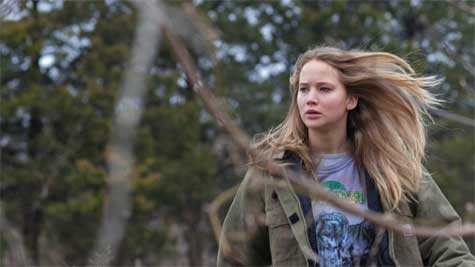
The best film I saw that was released in 2010 was Winter’s Bone; a cold slice of Ozarks-Noir. Which, of course, isn’t a genre, but the easiest way to describe this quest for a missing patriarch. Jennifer Lawrence’s performance is incredible, and I hope she’s rewarded. It’s not an easy movie by any means – the mountains are as much part of the scenery as they are written into the faces of much of the supporting cast – and you’ll never feel warm whilst watching it. It’s not a quest for redemption; just for survival. By the end of the film, it’s clear that all the characters are fighting to survive in their own ways. Great. (And: whilst Lawrence is the obvious stand-out, I loved John Hawkes’ nuanced performance as Teardrop).
I saw a lot, though, and enjoyed most things. I had a great time with Inception, primarily because I really like heist movies – put the team together, execute the job – and Nolan’s imaginative, clockwork plot played out as an excellent genre movie. It’s not necessarily clever, but it is intricate, and its execution is marvellous. Also, the suits are really good.
On the TV, I mainly enjoyed shows from America. The big discovery for me was Community, which is more inventive than many sitcoms I’ve seen a while. And I loved Rubicon for its intelligent take on intelligence work, even if it had a few too many plots for its own good, making its cancellation even more frustrating for fans. But what an actor’s show: Michael Cristofer’s Spangler is as devious as he is distracted, and Arliss Howard’s Ingram turned out to be exactly the sociopath you suspected he might be – an inventive sociopath, nontheless.
Books
Lots of alternate history this year.
Christopher Priest’s The Separation was a real stand-out – a tangly, bifurcated take on WWII, with two narratives of which only one can be true – though he refuses to commit to which. Twins, acting, impersonation, the negotiations of international politics; it’s a cracking read, and really shouldn’t have been buried on the SF shelf.
Similarly, Keith Roberts’ Pavane, a short-story sequence imagining England in the late 20th Century when ruled by a Holy Roman Empire was a real find. It’s a book heavily rooted in place: primarily around Dorset, Bournemouth, Dartmoor, that neck of the woods. In it, his characters enact a dance over fifty years – one that, initially, seems random, but structure eventually emerges. I also really liked the stuff about semaphore.
The biggest thing I read – spread throughout the year – was James Ellroy’s Underworld USA trilogy. The books stand alone well, if you don’t want to read the lot, and by the end, I think I can comfortably say that the very first (American Tabloid) is the best. They’re dense, knotted, slang-laden tales of politics and corruption, bad cops and good bagmen, surveillance and assassination, race and communism; the dark side of the sixties (and thus, the late fifties and early seventies – the lead-in and the results) explored through what might be true, might be history, might be a kind of alternate history. I was entranced, even when I squirmed through his machine-gun prose, the character’s casual racism (LA in the sixties as the black militant groups start to exert influence is not the most… sensitive setting), and the squicky violence. Though I like American Tabloid the first, Blood’s A Rover – 2009’s final installment – contains the clearest signs of redemption for many of the characters, and, in Don Crutchfield, one of Ellroy’s quietest protagonists.
Art
I think my favourite exhibitions of the year were the Irving Penn portraits at the NPG, and the Eadward Muybridge at Tate Britain.
The Penn was a lovely retrospective, showing an artist exploring portraiture and challenging its constraints. So much consistently inventive work throughout his career; so many brilliant portraits.
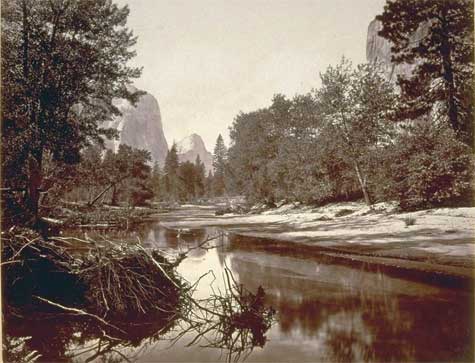
The Muybridge was a fascinating portrait of a man exploring photography itself. His time-and-motion images are rightly seminal, but what I wasn’t aware of was his landscape work – lugging huge photographic plates up the Californian hills, as an early landscape photographer. My favourite work in the exhibition were the gigantic, 360º panoramas of a pre-Earthquake San Francisco. An eccentric, then, but what an intrepid explorer of a nascent medium.
Oh, and special note to River Sounding at Somerset House; on a beautiful summer day, the thrumming, shaking bass of the Thames in its damp cellars was sensational.
Theatre
More trips to the theatre than in a long while, albeit still not many by the standard of the other sections of the list. One obvious stand out: The Old Vic’s revival of Tom Stoppard’s The Real Thing. Great to see this revived: in many ways, it’s one of his “straightest” plays, and manages to shift from a brilliant – if somehwat obvious opening – into a more thoughtful, considerate piece. It helped that Toby Stephens was utterly brilliant.
Music
One gig really stood out. Rival Schools at Hoxton Bar And Grill was a highlight. The post-hardcore group, almost on hiatus, return nine years after their first record with a second. And, with a falling star, comes a smaller venue: it sold out in an hour, was packed, and everybody knew the words to everything. And yet: so exciting to see such a polished, experience group of musicians still on top of the game, still playful – noodling around Beatles songs and metal covers between tracks – and playing to the audience perfectly.
And, of course, The Hold Steady in the summer played another of their great live sets: they’re fine enough on record, but are easily one of my favourite live acts: so much enthusiasm and energy, and, as ever, a ninety minute set with no duff moments.
Last.fm isn’t a representative example of what I enjoyed this year, strangely. Highlights from the CD stack: The Roots’ How I Got Over, the incredible My Beautiful Dark Twisted Fantasy, the Glasser and Warpaint albums, Scuba’s Triangulation, and many more besides.
My favourite moment in pop, though, was Nicki Minaj’s verse on Kanye’s Monster. For me, it’s one of the weaker tracks on MBDTF – until those ninety seconds, which are just something else. Seriously: best moment of the year.
Games

It’s hard to get away from Mass Effect 2, for me. My head tells me it’s exactly what I shouldn’t like – big, overarching, technical, lots of Up Front Story-Telling. It’s a bit too genre-heavy. And yet: my heart swelled as I played it. The gamer in me didn’t like the episodic structure, but the adult in me did: it played out like a series of Battlestar Galactica, broken near-perfectly into about 20-odd 45 minute chunks, advancing side-stories and main plot in turns. The shooting is now competent enough to not be hateful; the writing is great (when it’s not being a bit crap), and oh, the characters. Garrus, Thane, Legion, and especially Mordin; very strong. I know many people who didn’t get on with it, and I respect that: their problems were rarely mechanical, and usually about the universe, the characters, it not clicking. I think that’s OK – much better to dislike something because it’s not to your taste than because it’s entirely unlovable. Well done, Bioware.
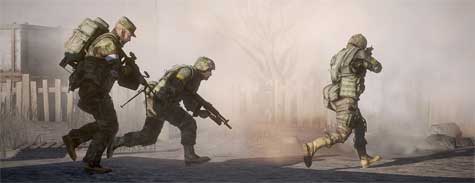
Battlefield: Bad Company 2, as well as being a total mouthful to say, was a surprise hit for me, and featured my favourite piece of gaming interface design last year: the way it utilises the back/select button. Public servers feature teamwork, almost no abuse, and very little voice chat, simply because of that button. It marks targets you’ve seen, and the little icon above them becomes visible for your whole team. As a result: everyone marks targets for everyone else. They get points for the mark, you get points for the kill, and so you mark targets for them. We don’t need to talk, or try to get people to play the team game, or argue with idiots, because we’ve got the back button. Couple that with the ability to respawn on squadmates, rather than way back at base, and BFBC2 works teamplay into its very mechanics without being complex or nerdy. The Vietnam expansion has brought people back, but the main game is still played to a high, social standard. The only team-game with public serves this good is TF2, in my tiny, humble opinion. And: the sound-design is phenomenal.
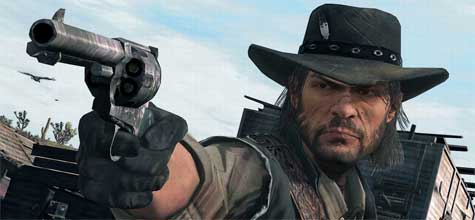
Red Dead Redemption was totally captivating for the twenty-or-so hours I explored its landscape, sidequests, and primary plot. It was lovely to see a genre so rarely explored in games done pretty well, although I do hope that some of the topics it explored – journey-as-narrative, most notably – can be explored without the brute force of a Rockstar budget and (alleged) Rockstar San Diego working practices.
Super Meat Boy is brilliant. Totally the sort of game my head likes. If you’ve not played it, you should. It’s got the tightest controls I’ve ever seen on a 360, brilliant level design, hilarious replays, and it manages to be the best kind of “old-school” fun. It’s nearly caused me to break a few controllers, but that’s part of the charm.
What else? Halo Reach, for starters. Halo is such an acquired taste, in my opinion; a real gamer’s game. After not caring much for 3, I ended up adoring Reach; a fine single-player campaign, tight, subtle multiplayer, and the rush that is Firefight. So much Firefight; so many grunts exploding in confetti. In some ways, it’s the top of the list – the most gamey-game I played this year. But it’s polish on something that was great to begin with, and not for everyone. If you’ve played it and liked it, you already know.
I didn’t play enough Super Street Fighter IV after giving so much time to the original, non-super variant last year. No matter; it’s not going away any time soon. And my unfinished pile is still high – right now, I’m enjoying Castlevania: Lords of Shadow and the majestic Need For Speed: Hot Pursuit, and they’re going to see me well into 2011.
That was a few things I liked in 2010; by no means all. Next year: more.
-
"In recent years we've seen plenty of criticism (including mine) leveled at video games that rehash old ideas; games that rely on genre formulas; games that ape the language of film. Games, we're often told, need new ideas. Games need to grow up. Games should leverage their defining interactivity. Cutscenes are lazy. Let movies be movies. Players want to write their own stories. Games don't need authored narratives. Games don't need linear stories. Games don't need stories. All games should be fun. No they shouldn't.
The problem with these reductive arguments is they fail to account for how art rails against boundaries; how artists inevitably seek to situate their work in the margins no one can own. Artists instinctively push back against "don't," "shouldn't," and "must." This is why we give them genius grants. It's also why we put them in prison. The real action is in the margins." Good stuff from Michael.
-
"It's true that Wyndham's preference is for no-nonsense, brisk, wry narrators, and the horrors that visit the books can seem like opportunities to show off good old British pluck. But the books are surprisingly unheroic, and often (notably in the cases of Kraken and Triffids) peculiarly open-ended. And if you look closely, you begin to see that there's something very uncosy, persistently unsettling, about these books, that continues to ask profound questions about the limits of our culture and the foundations of the post-war world."
-
"We’re happy to confirm the news today that the sale of the company is complete. We appreciate all of your support, comments and warm wishes in the preceding few weeks.
Viacom and MTV Networks have been an amazing home for us over the past 4 years. It’s where we launched both Rock Band and Dance Central, worked with The Beatles, Green Day, AC/DC, The Who and thousands of other artists. We want to take a moment to thank everyone in that organization who helped make these awesome games possible.
We’re excited to be returning to our roots as an independent and privately owned studio."
Brilliant news.
-
"In an astonishing move, the European Com mis sion (EC) has reversed a decision made in a UK tax tribunal, and refused to classify works by Dan Flavin and Bill Viola as “art”. This means that UK galleries and auction houses will have to pay full VAT (value added tax, which goes up to 20% next year) and customs dues on video and light works, when they are imported from outside the EU. The decision is binding on all member states." Very sad.
